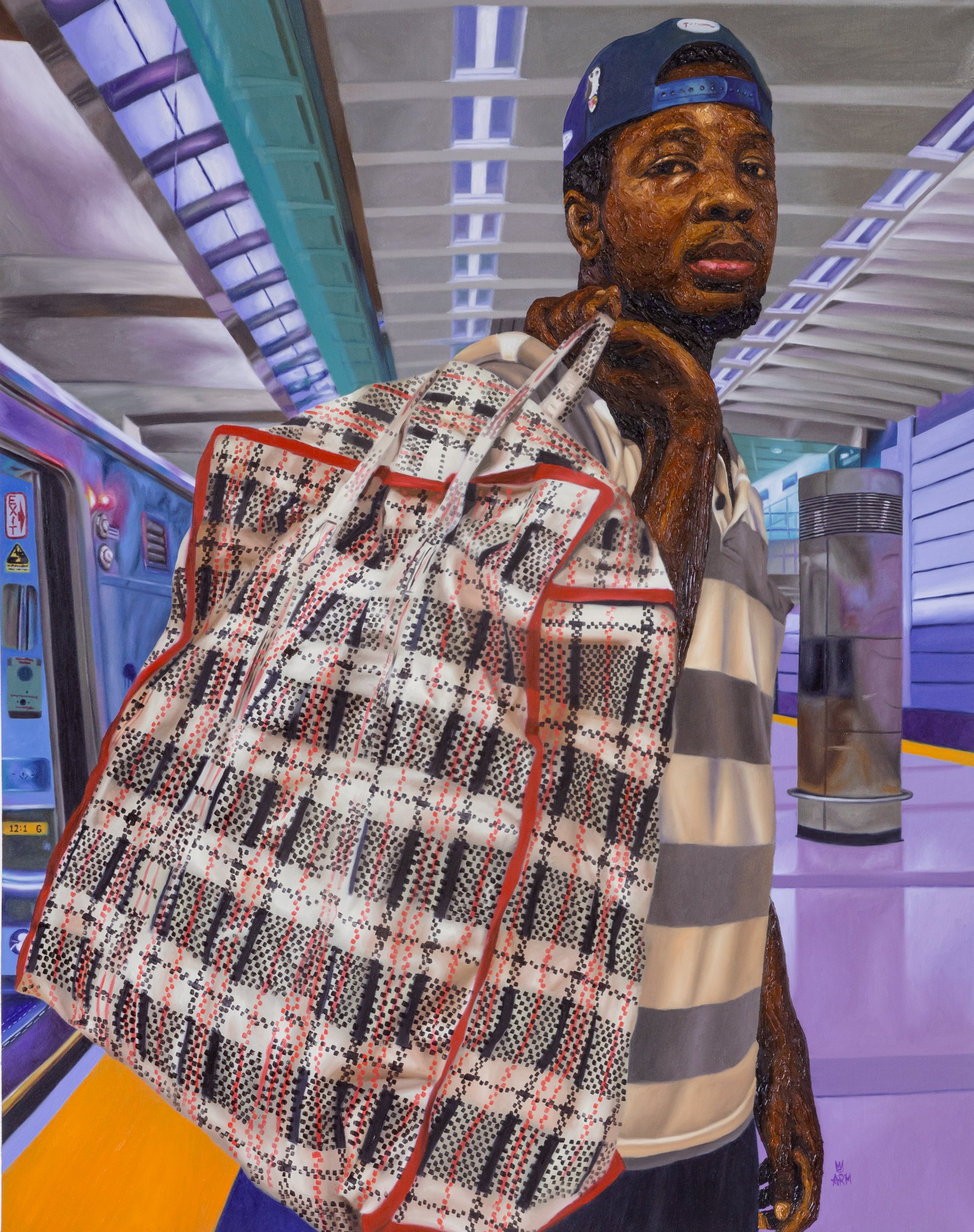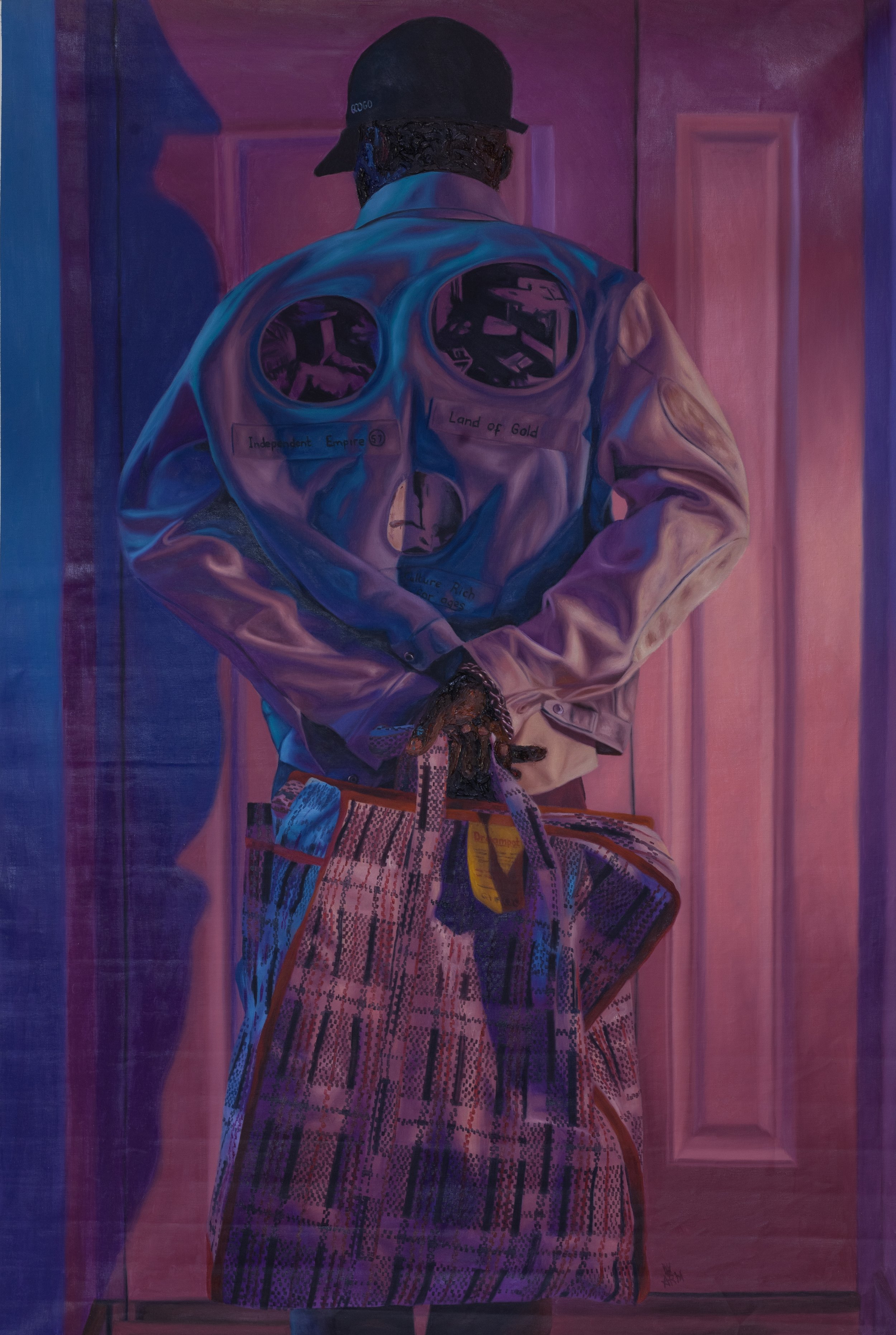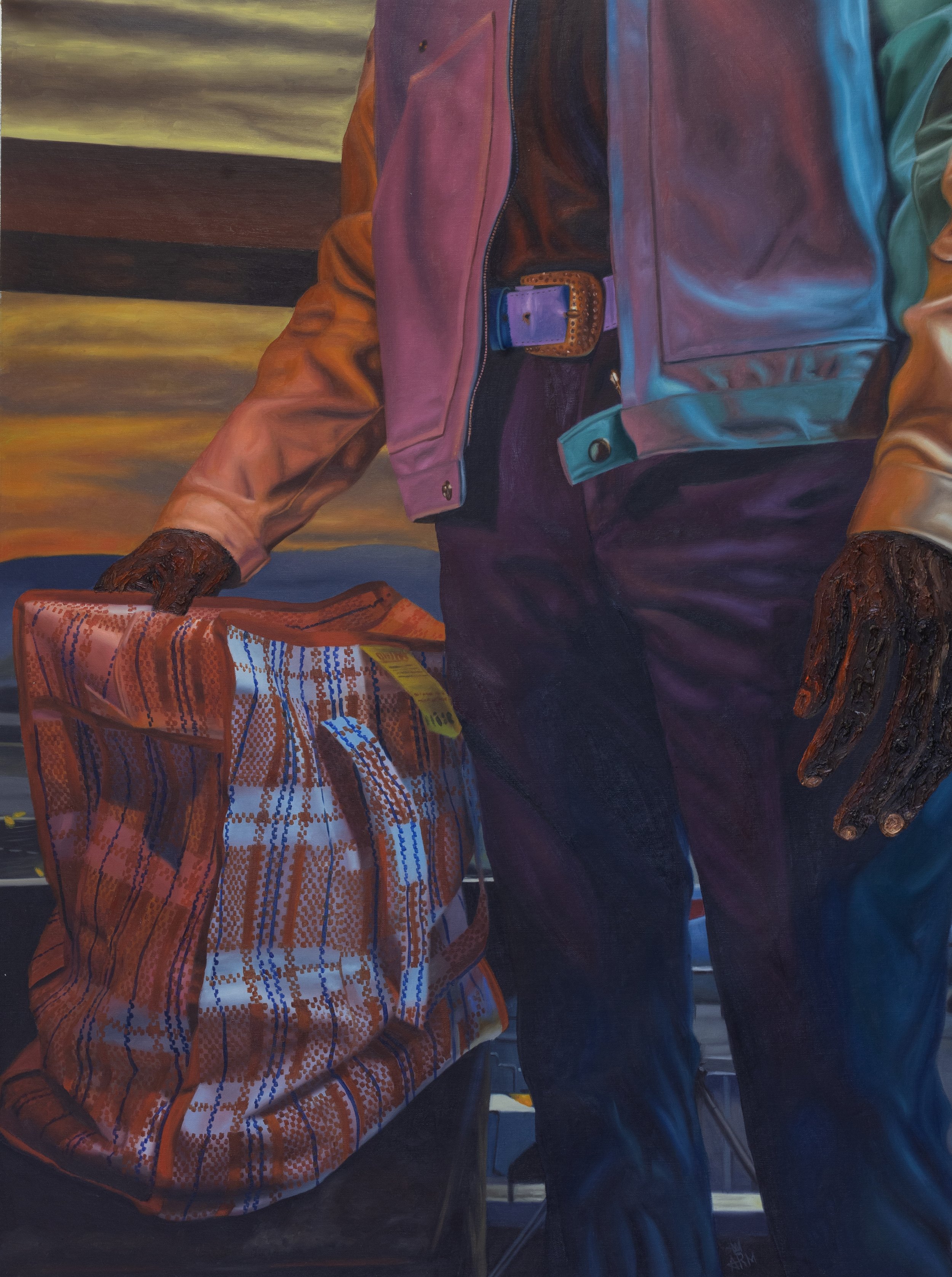Abdur Rahman Muhammad
BIO
Abdur Rahman Muhammad (Ghanaian, b. 1992) is a contemporary artist who works and resides in Accra. He has been a practicing artist for over six years. His works are usually influenced by the culture of western music, especially hip-hop and its effect on the youth of Ghana. He is a member of the Ghanaian art collective, Artemartis. His works have found their way to collectors and exhibitions all over the world. He applies oil in his works, and he focuses on stories of the youth in his community, often experienced first-hand.
ARTIST STATEMENT
In the In my artistic endeavors, I draw inspiration from the rich tapestry of history and contemporary events seeking to intertwine the narratives that bridge the gap between the past and the present. Influenced by the insightful storytelling abilities of rappers who skillfully navigate critical issues using astute wordplay, my work seeks to mirror this intersection between art and commentary.
Using figuration as my selected medium, I employ an impasto technique in my painting process to imbue my subjects with texture and depth. This approach serves as a visual metaphor, symbolizing the complexities embedded in my narratives. Whereas, other elements in my paintings remain deliberately flat, creating a dynamic interplay of visual dimensions that mirror the nuanced layers of the narrative I seek to explore.
Through the synthesis of historical awareness, contemporary relevance, and a nod to the lyrical finesse of rap, my art serves as a visual dialogue, inviting viewers to engage with the layered stories embedded within each stroke and texture. Ultimately it encourages the reflection of the interconnectedness of our collective human experience. I believe my current project is cathartic, touching on the pursuit of greener pastures and expressing the views and experiences of young Ghanaians on the matter.
ARTWORKS

“Genesis” - 2023. Oil On Canvas.

“Purple Way Tagged Green” - 2023. Oil On Canvas.

“Infinite Reveries” - 2024. Oil On Canvas.

“In Hands To Hold” - 2024. Oil On Canvas.



